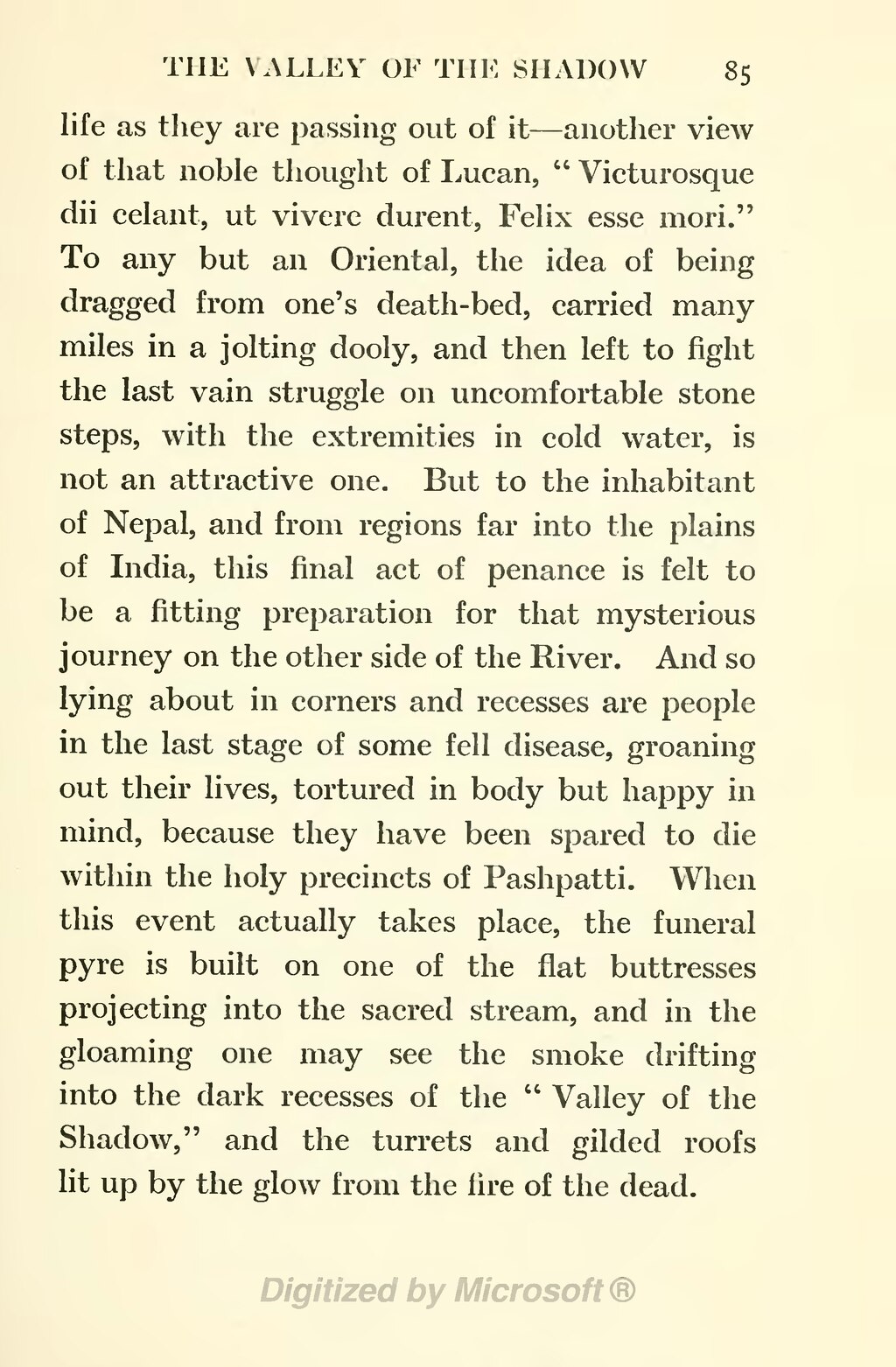life as they are passing out of it—another view of that noble thought of Lucan, "Victurosque dii celant, ut vivere durent, Felix esse mori." To any but an Oriental, the idea of being dragged from one's death-bed, carried many miles in a jolting dooly, and then left to fight the last vain struggle on uncomfortable stone steps, with the extremities in cold water, is not an attractive one. But to the inhabitant of Nepal, and from regions far into the plains of India, this final act of penance is felt to be a fitting preparation for that mysterious journey on the other side of the River. And so lying about in corners and recesses are people in the last stage of some fell disease, groaning out their lives, tortured in body but happy in mind, because they have been spared to die within the holy precincts of Pashpatti. When this event actually takes place, the funeral pyre is built on one of the flat buttresses projecting into the sacred stream, and in the gloaming one may see the smoke drifting into the dark recesses of the "Valley of the Shadow," and the turrets and gilded roofs lit up by the glow from the fire of the dead.
